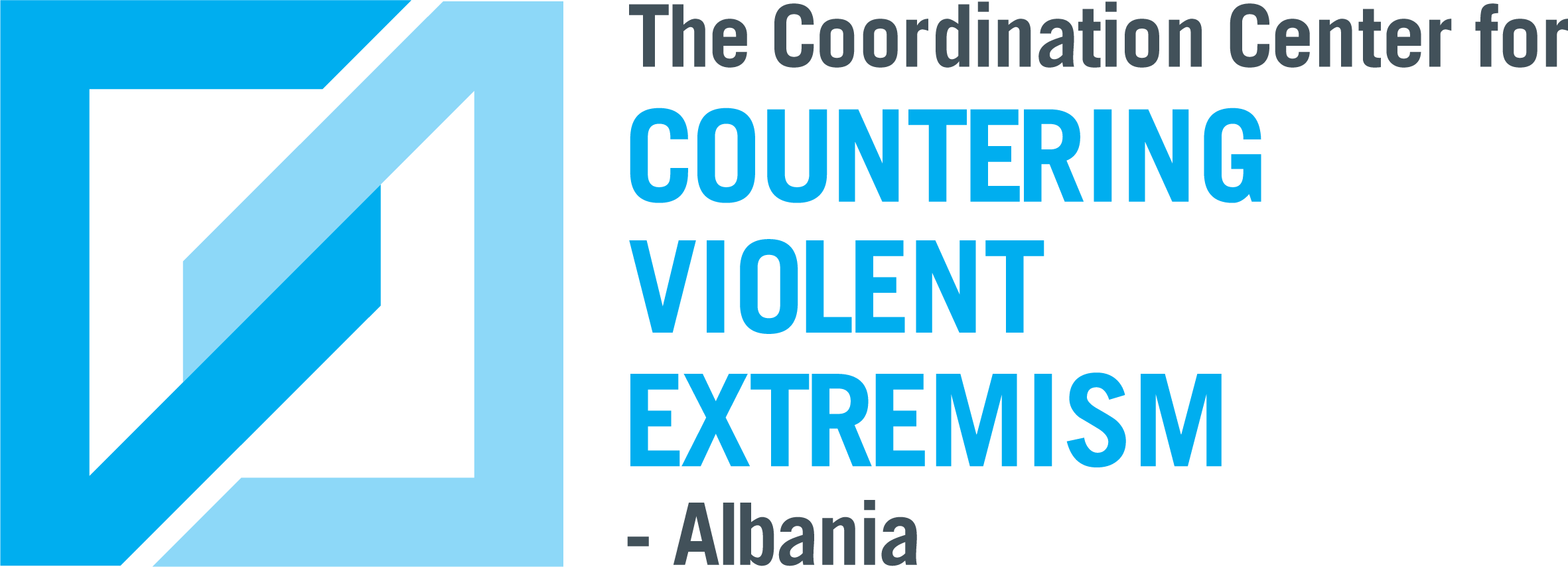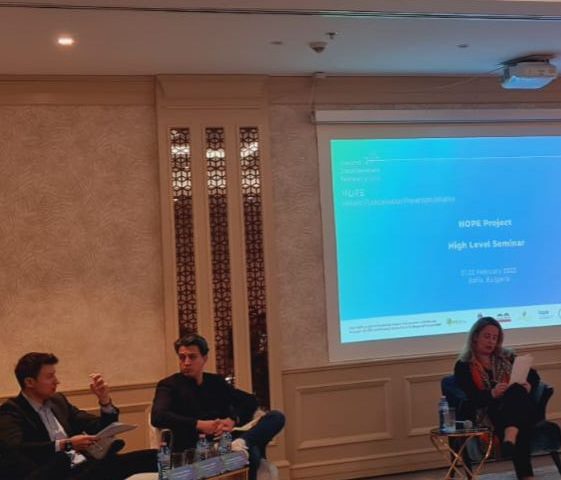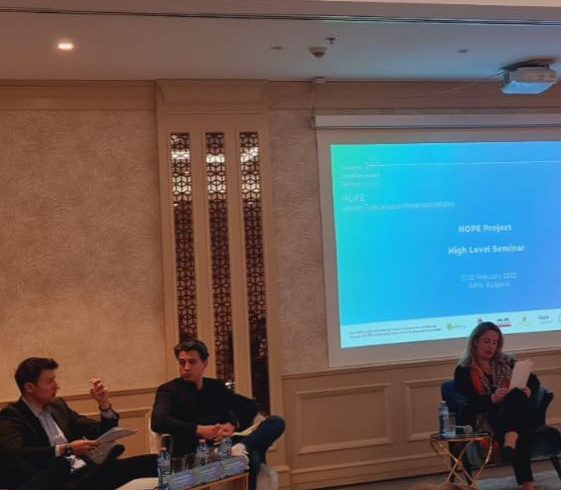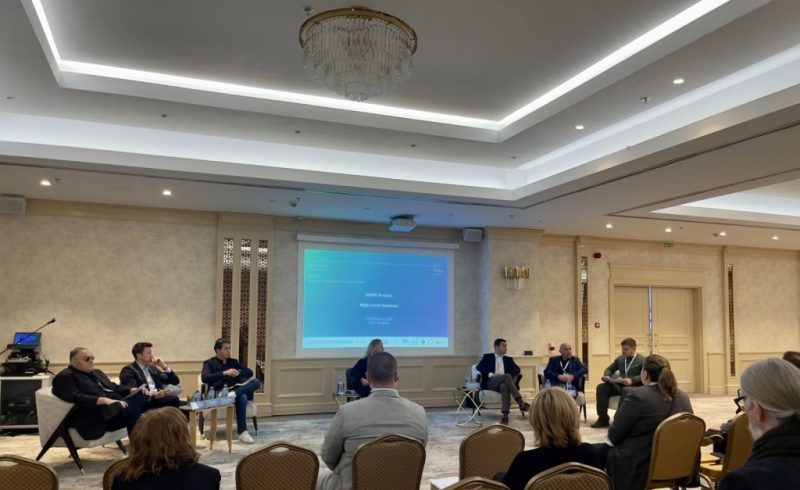Publisher: Cve.gov.al 24/02/2023
Bulgaria/Prevention and fight against radicalization in the Balkans, Southern & Eastern Europe: Holistic approach implemented within the HOPE program.

The CVE Center in the Strong Cities network program, Sarajevo, Bosnia & Herzegovina organized by the “Western Balkans Regional Network”
20/02/2023
DASH Advisor for Anti-Terror, Dan Guerrero on a working visit to Albania
27/02/2023Bulgaria/Prevention and fight against radicalization in the Balkans, Southern & Eastern Europe: Holistic approach implemented within the HOPE program.
Director of the CVE center, Meidani was part of the high-level workshop in Bulgaria/Prevention and fight against radicalization in the Balkans, Southern and Eastern Europe: Holistic approach implemented within the framework of the HOPE program.
“The rehabilitation and reintegration of prisoners convicted of terrorism requires an integrated multi-sectoral approach. For the CVE Center, continuous monitoring of these approaches, management of risk management assessment instruments and interaction for convicts on the verge of release remains the highest priority in consolidating good practices and preventing recidivism” – were some of the words of Mr. Meidani in the speech held at the high-level seminar on the topic: Rehabilitation and reintegration of those convicted of criminal offenses of terrorism, held on February 21 and 22, 2023, in Sofia, Bulgaria under the auspices of the General Directorate of the Execution of Sentences of Bulgaria, IPS Portugal and the University College of the Norwegian Correctional Service, within the HOPE project.
Representatives of criminal justice, civil society actors, experts, academics, etc. participated in this activity. The seminar was greeted by the Bulgarian Minister of Justice, Mr. Krum Zarkov, General Director of the General Directorate of Execution of Criminal Decisions of Bulgaria, Mr. Ivaylo Yordanov, Mr. Torben Adams, representative of the United Nations Office on Crime and Narcotics, Mr. David Hensen, Norwegian University College for Correctional Service etc.
The assessment of the risk from radicalism and the holistic treatment for its prevention have been part of the discussions addressed in this organization. “Make no mistake, terrorism is only the last stage in a long path of ideological incitement in areas where extremism is allowed to grow and spread,” said Mr. Meidani, giving importance to the whole process which brings exactly the flowering of this last phase: Terrorism. What comes as an urgent task is precisely the effort and treatment of the signals of violent extremism and radicalism as early as possible.
“I believe that these efforts, now more than ever, must include long-term plans and strategies to effectively address especially the roots of extremism and possible future forms. Indeed, we may have been effective so far in significantly reducing the capabilities of major terrorist organizations to plan and carry out attacks in several countries,” he further added.
Another topic addressed in the seminar was: “Perspectives and challenges in the Balkans and the region of Eastern and Southern Europe, as well as the assessment of the needs of the local actors of these countries”. “We are here today to ensure that the stakeholders involved understand that law and order cannot be established, or the safety of citizens and the state cannot be maintained without the input of the correctional system along with the police and other law enforcement agencies, but also to other non-state actors that act in relation to functional criminal justice systems. Functional correctional systems are a prerequisite for efforts to deal with extremism” continued in his speech the Director of the CVE center, Mr. Maidani.
The crucial role of civil society in the rehabilitation and reintegration of violent extremists and terrorists was another point of discussion at the seminar. “Growing social inequalities and sluggish economic growth are likely to further exacerbate people’s vulnerabilities, frustration and mistrust. Therefore, their tendency towards radicalization occurs”.



